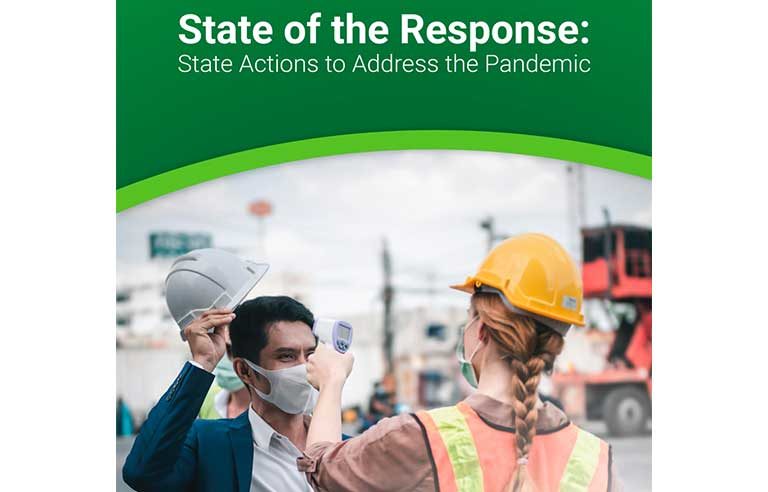Majority of states ‘can do more’ to slow COVID-19 pandemic: NSC report

Itasca, IL — Efforts to address the COVID-19 pandemic are “lagging” or “off track” in more than three-quarters of the United States, according to a recent report from the National Safety Council.
Released Sept. 29, State of the Response: State Actions to Address the Pandemic analyzes each state’s and the District of Columbia’s efforts in five areas of emphasis outlined in the council’s SAFER: Safe Actions for Employee Returns initiative: employer guidelines, testing, contact tracing, mental health and substance use, and roadway safety.
Overall, NSC rated 28 states and the District of Columbia as “lagging” in their endeavors and 10 states as “off track.” Only 12 states received an assessment of “on track” in the evaluation. New Mexico, New York, California, Rhode Island and Washington garnered the highest overall ratings, respectively, when each area was considered, while Mississippi and South Dakota tied for the lowest mark.
“Many states have shown ingenuity and grit when it comes to protecting citizens, while others fell short,” NSC President and CEO Lorraine M. Martin said in a Sept. 29 press release. “This report is intended not as a condemnation but as a challenge to states to learn from each other and do better – and as a reminder to employers that our workers are the lifeblood of our country, and their safety is paramount. By coming together, we believe states can improve overall safety and health outcomes and strengthen our economic recovery.”
In the report, NSC offers recommendations to state government and business leaders to more effectively address pandemic relief and mitigation efforts. Among them:
- Provide clear, comprehensive guidelines to employers on how to operate safely during the pandemic. Create one website or source for all of this information.
- Increase testing capacity, and ensure tests are easily accessible and affordable. Include employers in testing plans.
- Increase capacity for contact tracing, and establish clear guidance on how to support contact tracing in the workplace with the use of technology.
- Expand Medicaid to cover all individuals allowed under the Affordable Care Act and permanently suspend work requirements.
- Permit the implementation of automated enforcement programs for speeding and red-light running.
- Implement a primary enforcement seat belt law.
- Reduce the legal blood alcohol content level to .05%.
“We are six months into fighting this global pandemic, and NSC knows we can do more by working together, including sharing best practices,” the report states. “By using these clear recommendations for state actions, including engaging workers, we believe states can improve the overall safety and health outcomes.”
In a letter sent July 24 to National Governors Association Chair Larry Hogan (R-MD) and Vice Chair Andrew Cuomo (D-NY), NSC and 48 partner organizations called on governors and business leaders to develop consistent protocols for coronavirus testing and contact tracing.
The letter invites governors and business leaders to collaborate with leaders in safety, public health, health care and industry to develop “a commonsense approach that uniformly implements known best practices” for virus control.
The report states that “inclusion of employers in state testing plans is inconsistent and often lacking completely,” citing an August report from the Wall Street Journal.
NSC plans to unveil additional reports and analysis and host further discussions at its State of COVID-19 Response Summit, scheduled for Dec. 9.

